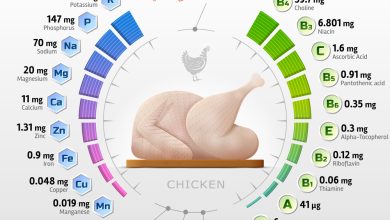From Grill to Plate: Hot Dog Nutrition Facts You Should Know

Hot dogs are an iconic food item, celebrated and enjoyed by many across various occasions. Whether it’s a summer BBQ, a bustling sports event, or a simple family gathering, the hot dog often finds its place as a crowd favorite. The irresistible blend of savory flavors makes it a go-to choice for quick meals and festive spreads alike.
However, while indulging in this classic comfort food, it’s important to be aware of what you’re consuming. Understanding the nutritional components of hot dogs can help you make informed decisions about your diet. So, let’s dive into the details and uncover the nutritional facts of hot dogs, helping you enjoy them responsibly and with greater knowledge.
History of the Hot Dog
The origins of the hot dog can be traced back to the 19th century in Europe, particularly to Germany and Austria where similar sausages were popular. German immigrants are credited with bringing these delectable sausages to the United States, where they gained popularity as a street food in bustling cities like New York.
Over time, the hot dog evolved from a simple sausage to the beloved, versatile snack we know today, often served in a soft bun with an array of toppings. Its cultural significance grew as it became synonymous with American events such as baseball games, Fourth of July celebrations, and summer cookouts. This evolution not only highlights the adaptability of the hot dog but also underscores its role in American culinary tradition, bridging cultural practices and creating a universally cherished food item.
Basic Nutritional Information
When it comes to understanding the nutritional value of hot dogs, it’s essential to break down their primary components: calories, protein, fats, and carbohydrates. A typical beef hot dog contains around 150 calories, with 5 grams of protein, 13 grams of fat, and 2 grams of carbohydrates. Pork hot dogs are similar, though they can vary slightly depending on the brand and recipe.
Chicken hot dogs, often considered a leaner choice, generally contain about 100 calories, 7 grams of protein, 8 grams of fat, and 1 gram of carbohydrates. For those seeking a meat-free option, vegetarian hot dogs are usually lower in fat but can vary significantly in terms of protein and calories, often providing around 60-100 calories, 2-8 grams of protein, and 1-2 grams of fat based on the ingredients used.
By comparing these different types, you can choose a hot dog that fits better with your dietary goals, whether you’re aiming for higher protein intake or looking to reduce fat consumption.
Common Ingredients
Hot dogs may be a quick and convenient food option, but their ingredient lists can be surprisingly complex. A typical hot dog is made from meat trimmings, which can include beef, pork, chicken, or a blend of these meats. These trimmings are finely ground, seasoned with salt, garlic, sugar, and various spices, and then stuffed into casings to give them their signature shape.
In addition to these primary components, hot dogs often contain preservatives and additives to enhance flavor, texture, and shelf life. Common preservatives such as sodium nitrite play a crucial role in maintaining the hot dog’s red hue and preventing bacterial growth, while additives like corn syrup, fillers, and artificial flavorings contribute to the taste and mouthfeel.
Understanding these ingredients and their purposes can help you make more conscious choices when selecting hot dogs, especially if you are sensitive to additives or prefer a more natural diet.
Health Considerations
When enjoying hot dogs, it’s crucial to be aware of certain health considerations to make balanced dietary choices. One significant concern is the high sodium content, with a single hot dog often containing around 500 to 600 milligrams of sodium. Excessive sodium intake can lead to hypertension and increase the risk of cardiovascular diseases.
Additionally, hot dogs are rich in saturated fats, which can contribute to elevated cholesterol levels, potentially leading to heart disease if consumed in large amounts. It’s also important to consider potential allergens; hot dogs may contain ingredients like soy, wheat, and dairy, which can trigger allergic reactions in sensitive individuals. By understanding these factors, you can enjoy hot dogs as an occasional treat while being mindful of their impact on your overall health.
Healthier Alternatives
For those who love hot dogs but are seeking healthier alternatives, there are several options to consider that can help reduce calorie and fat intake without sacrificing flavor. One of the easiest ways to make a healthier choice is by opting for hot dogs made from leaner meats such as chicken or turkey, which typically contain less fat and fewer calories than traditional beef or pork varieties.
Vegetarian versions are also a fantastic option, often crafted from soy, tofu, or other plant-based ingredients that provide a low-fat, nutrient-rich alternative. When it comes to buns and toppings, selecting whole grain or whole wheat buns can enhance the nutritional value of your meal by adding fiber and essential nutrients.
Additionally, consider loading up on fresh toppings like tomatoes, onions, and leafy greens, and using healthier condiments such as mustard or avocado instead of high-sugar ketchup or mayonnaise. By making these mindful choices, you can enjoy a delicious hot dog that’s better for your health and fits your dietary preferences.
Frequently Asked Questions
Answers to Common Questions About Hot Dog Consumption and Health
Many people have questions about hot dog consumption and its impact on health. One common question is, “Are hot dogs safe to eat regularly?” While hot dogs can be enjoyed as a tasty treat, it’s important to consume them in moderation due to their high sodium and saturated fat content. Another frequently asked question is, “Can hot dogs fit into a balanced diet?” Yes, hot dogs can be part of a balanced diet if chosen wisely and consumed alongside nutrient-rich foods like vegetables.
People often wonder, “What are the healthiest hot dog options?” Opting for hot dogs made from lean meats, such as chicken or turkey, and plant-based alternatives can significantly reduce calorie and fat intake. Lastly, “How can I make my hot dog meals healthier?” Simple swaps, like using whole grain buns and loading up on fresh, nutrient-dense toppings, can enhance the nutritional profile of your meal. By addressing these questions, we can better understand how to enjoy hot dogs responsibly while maintaining a balanced and health-conscious diet.
Conclusion
Summary of Key Points
In this blog post, we’ve explored the nutritional profiles of various types of hot dogs, including beef, pork, chicken, and vegetarian options. We’ve also delved into their common ingredients, highlighting the importance of being aware of preservatives and additives. Understanding the health implications, such as high sodium and saturated fat content, has been key to making informed decisions. Moreover, we’ve discussed healthier alternatives, such as opting for lean meats, plant-based options, and incorporating nutrient-rich toppings and whole grain buns.
Encouragement to Make Informed Choices
Making informed dietary choices doesn’t mean you have to give up your favorite foods entirely. By being aware of what goes into your hot dogs and the impact they can have on your health, you can enjoy them more mindfully. Whether it’s choosing a leaner meat option, trying a vegetarian variety, or adding healthier toppings, these small adjustments can make a significant difference to your overall well-being.
Final Thoughts on Enjoying Hot Dogs in Moderation
Hot dogs can certainly be part of a balanced diet when consumed in moderation. By understanding their nutritional content and making mindful choices, you can savor the flavors you love while supporting your health. Remember, it’s all about balance and moderation. So, next time you fire up the grill, feel confident in your ability to make choices that reflect a healthier and more conscious approach to eating. Enjoy your hot dogs thoughtfully, and relish every bite!




